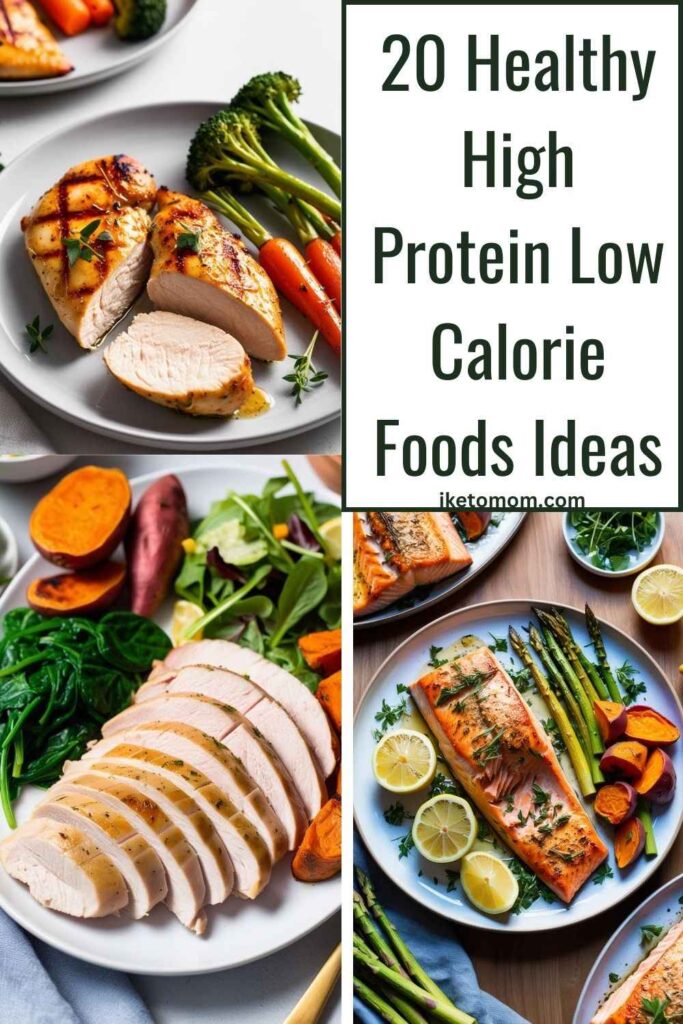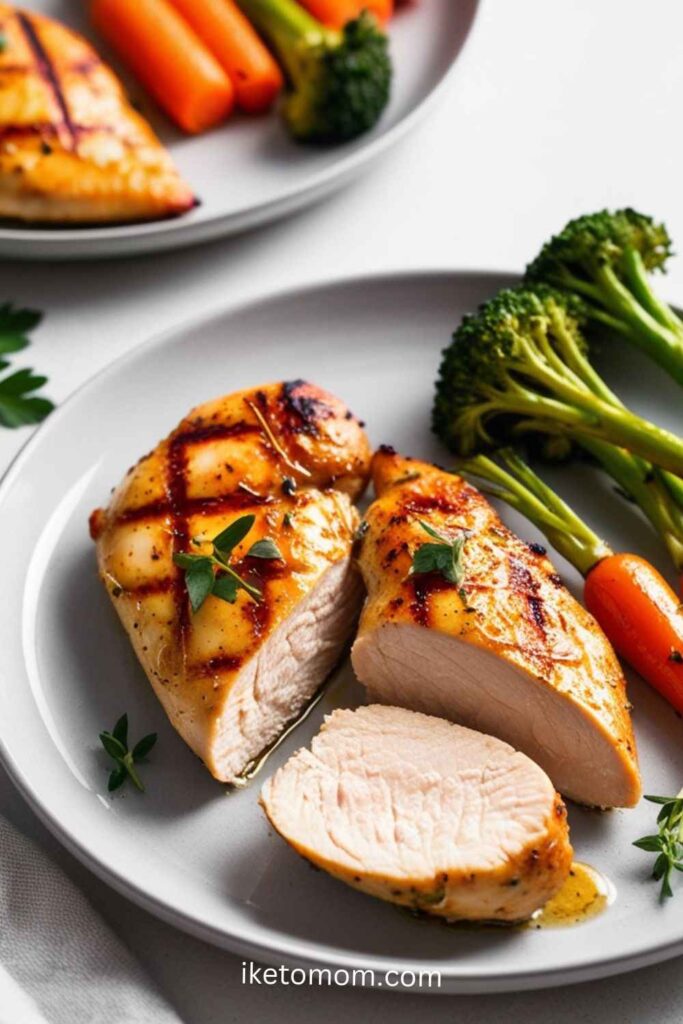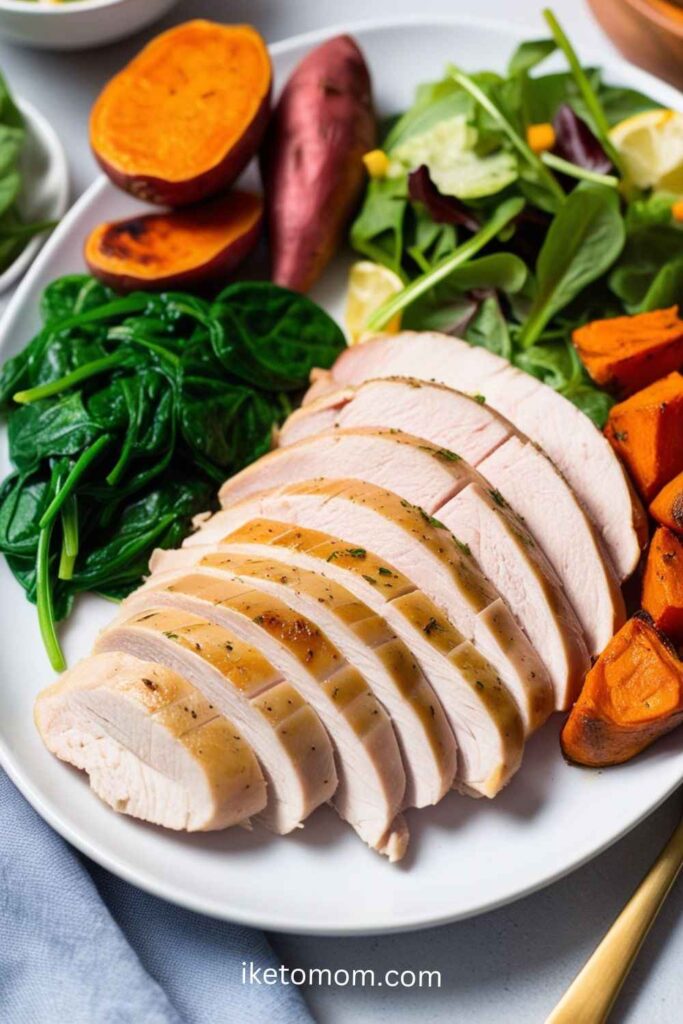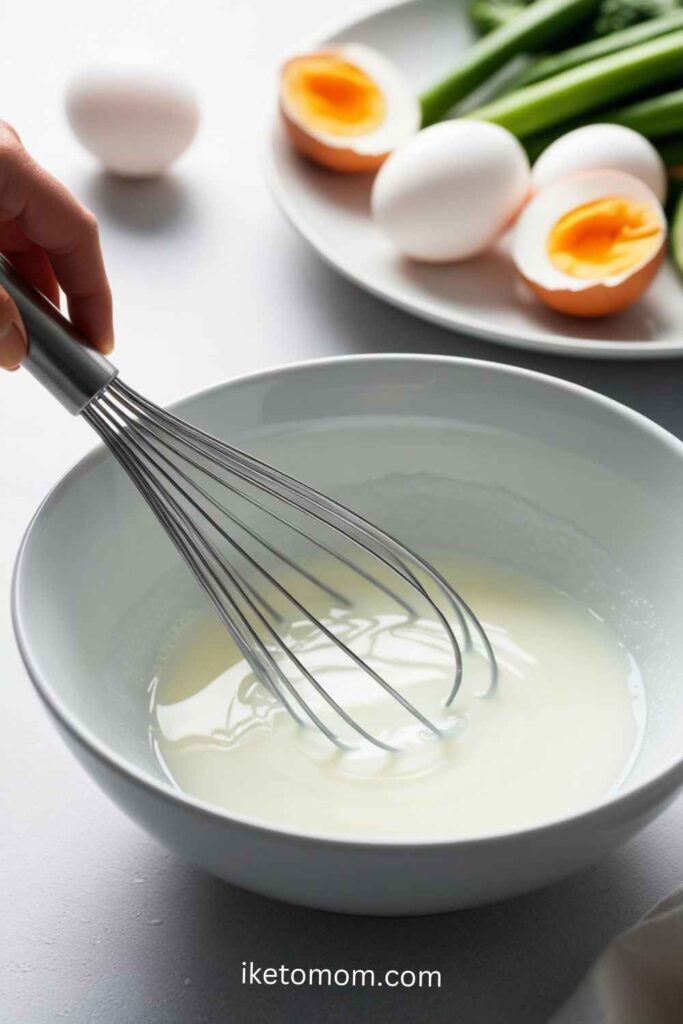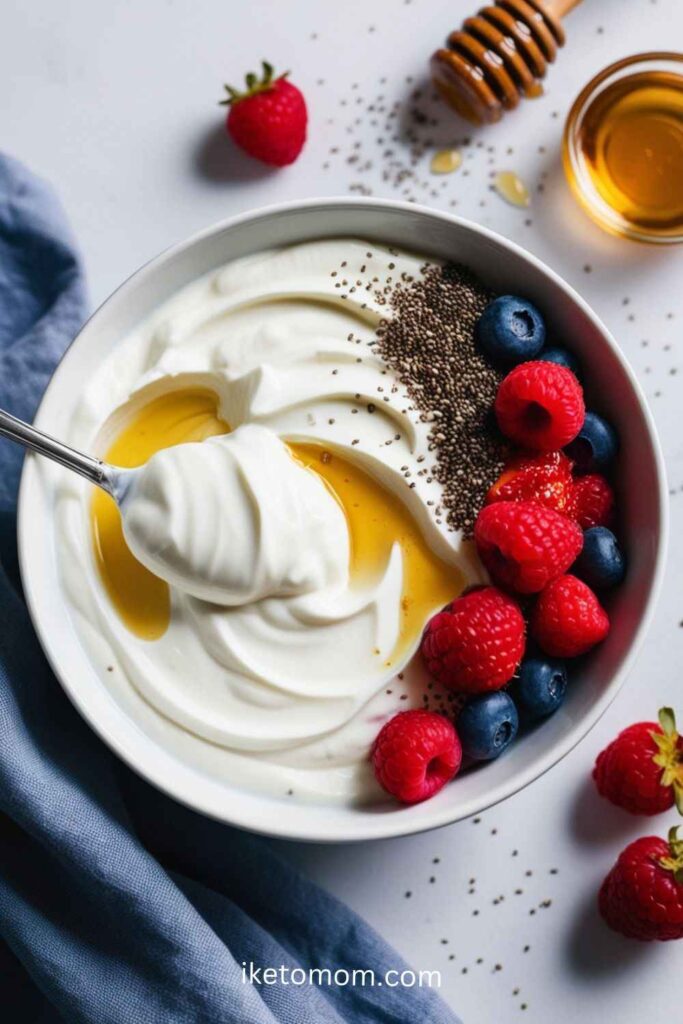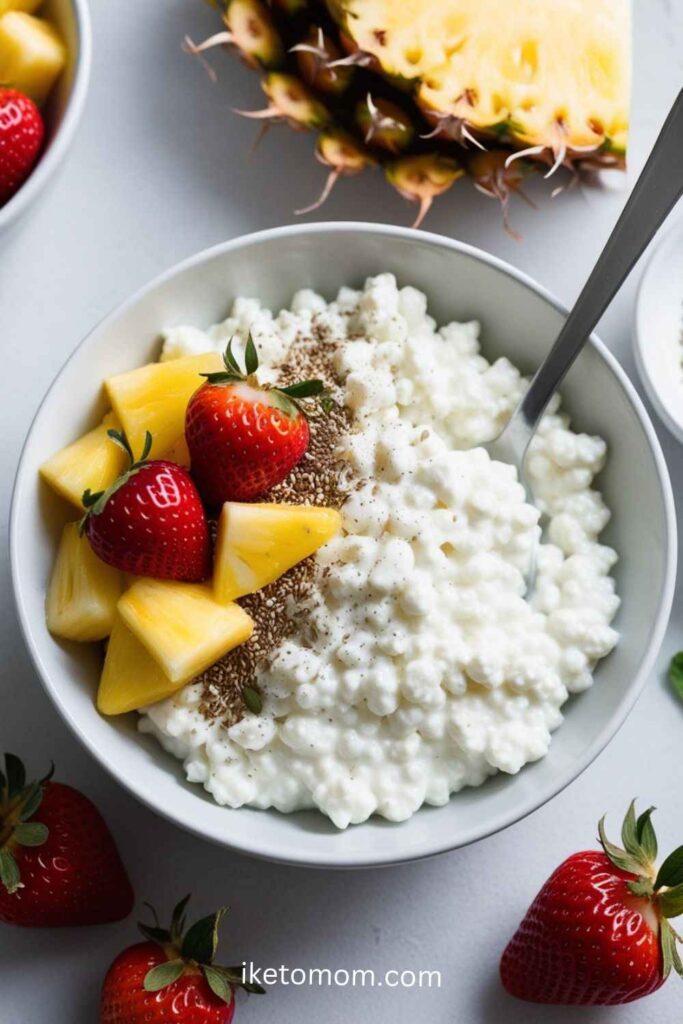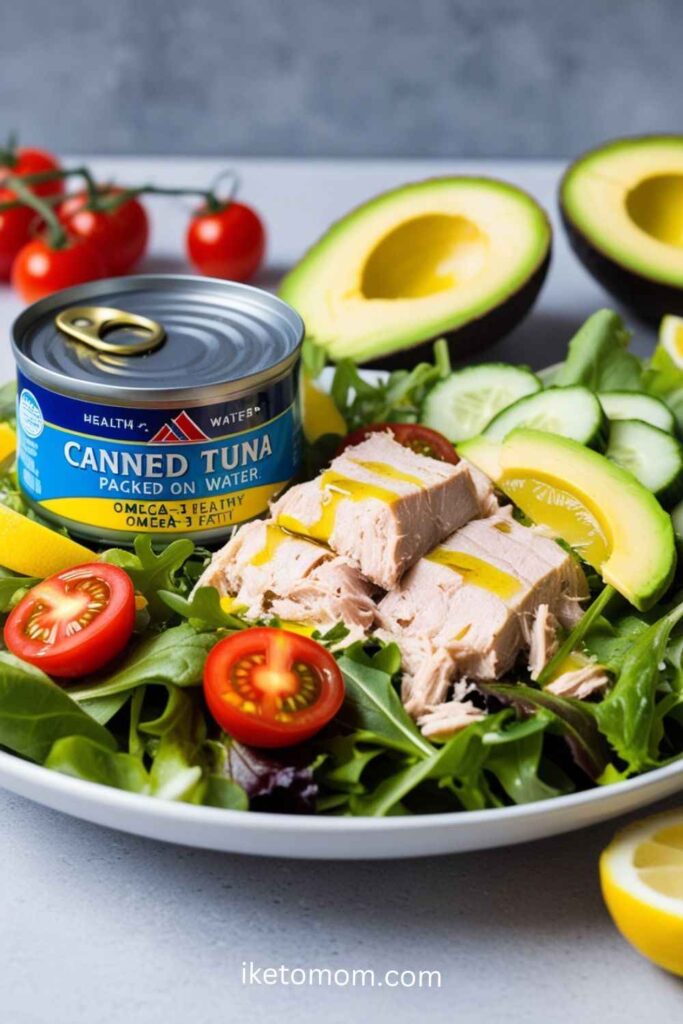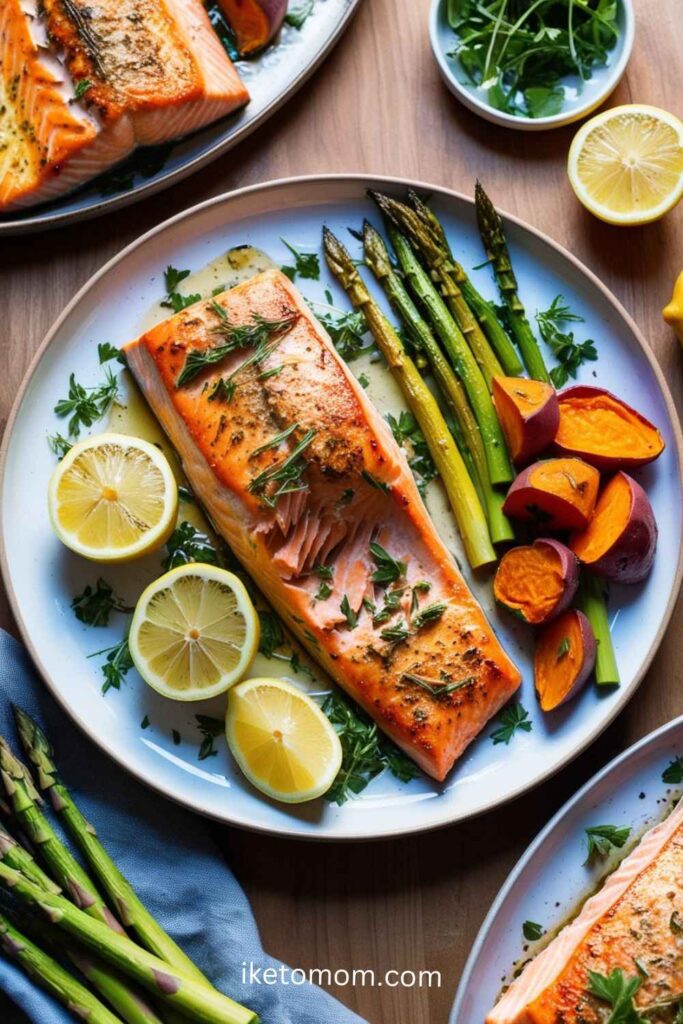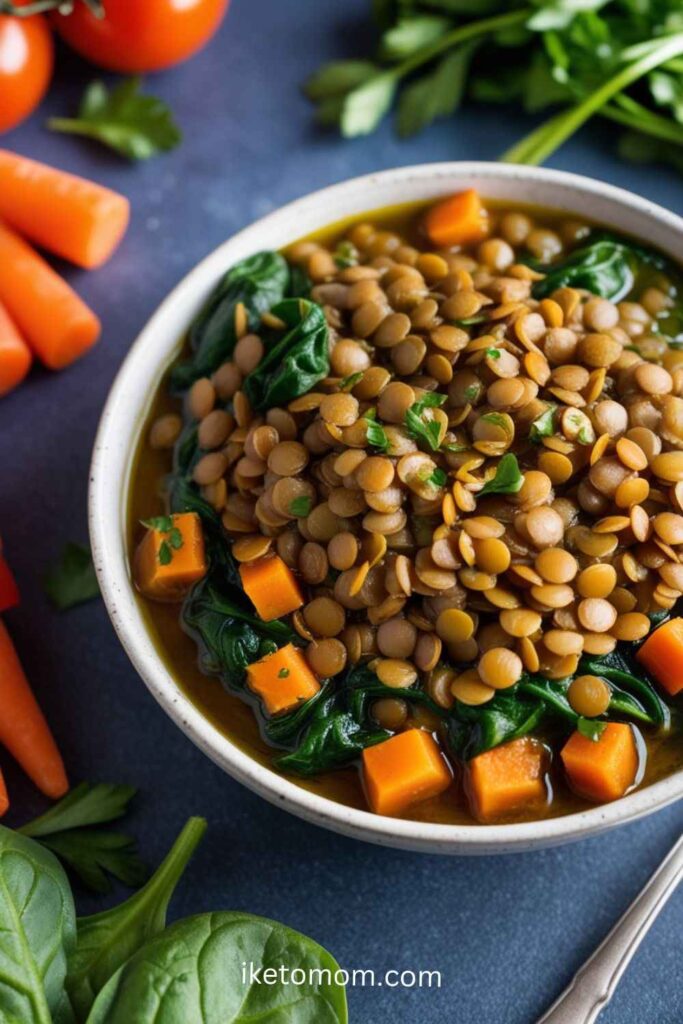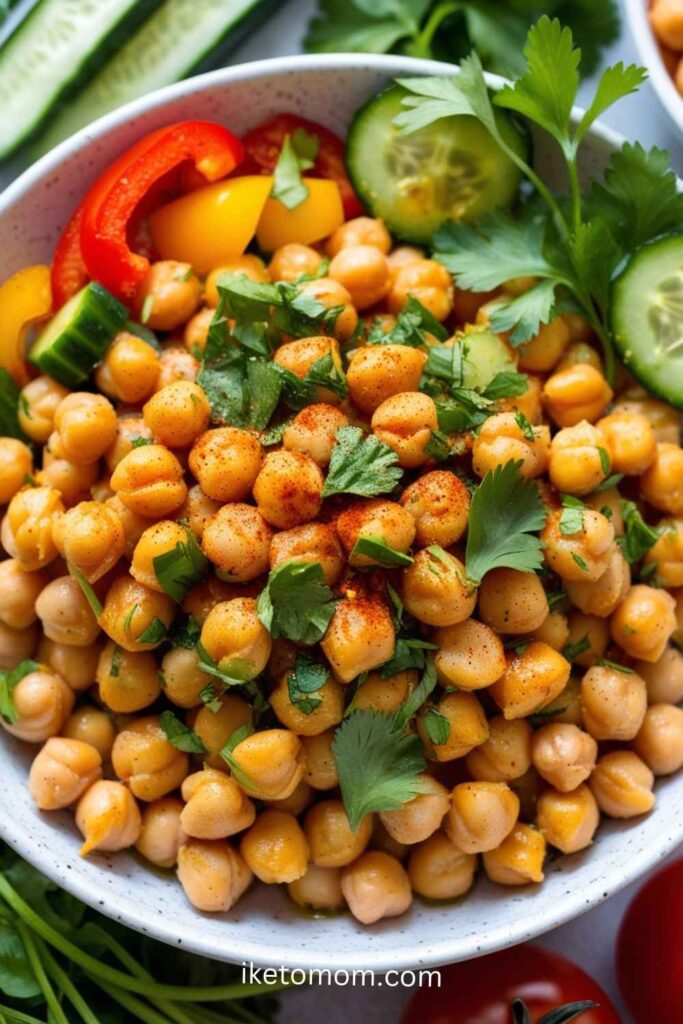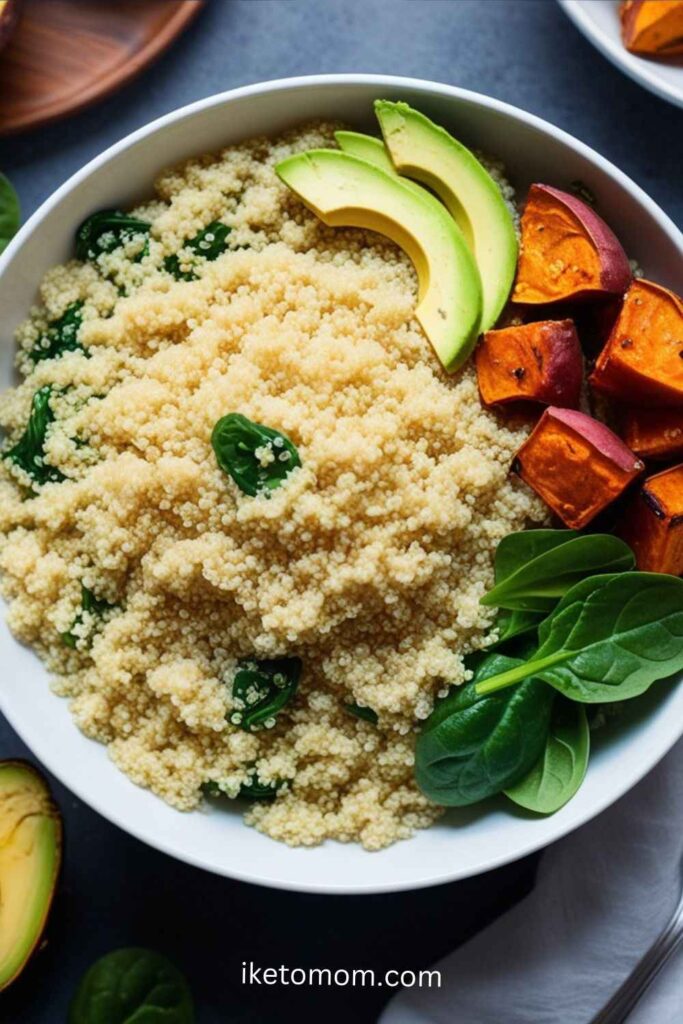The right balance of protein and low-calorie intake can also improve your overall well-being by promoting healthy digestion, supporting bone health, and enhancing your immune system. In this article, we’ll explore High Protein Low Calorie Foods Ideas that you can easily incorporate into your meals, providing a variety of options to suit your taste and dietary needs.
High-protein, low-calorie foods play a crucial role in supporting a healthy lifestyle. Whether you are looking to lose weight, build lean muscle, or maintain overall wellness, these foods are essential for achieving your fitness goals. Incorporating high-protein, low-calorie options into your diet can help you feel fuller for longer, reduce cravings, and increase your metabolism, making it easier to manage your weight.
For those aiming to build muscle or recover after a workout, protein is the key nutrient for repairing and growing muscle tissue. At the same time, low-calorie foods help ensure that you aren’t overloading your body with excess calories, which can contribute to fat storage.
Healthy High Protein Low Calorie Foods Ideas
1. Chicken Breast
Chicken breast is one of the most popular and versatile sources of high-protein, low-calorie food. It is an excellent choice for anyone looking to boost their protein intake without consuming excessive calories. A 3-ounce serving of skinless, boneless chicken breast provides approximately 26 grams of protein and only 128 calories, making it a fantastic option for those seeking to maintain or lose weight while promoting muscle growth.
Nutrition Information:
- Protein: 26 grams per 3 oz serving
- Calories: 128 per 3 oz
Health Benefits: Chicken breast is considered a lean protein source, meaning it’s low in fat and saturated fat, making it heart-healthy. The high protein content is essential for muscle repair and growth, which is especially important after exercise or strength training. It also helps keep you feeling full longer, preventing overeating and supporting weight management.
In addition to protein, chicken breast is a rich source of important vitamins and minerals such as niacin (vitamin B3), which plays a role in energy production, and selenium, an antioxidant that supports the immune system.
Whether grilled, baked, or poached, chicken breast is incredibly adaptable to a variety of dishes, making it an easy and nutritious addition to any diet.
2. Turkey Breast
Turkey breast is another excellent high-protein, low-calorie food that offers a wide range of health benefits. A 3-ounce serving of skinless, boneless turkey breast provides 25 grams of protein and only 135 calories, making it a great choice for those looking to boost their protein intake while keeping calories in check. It’s particularly favored by those seeking to build lean muscle or maintain a healthy weight.
Nutrition Information:
- Protein: 25 grams per 3 oz serving
- Calories: 135 per 3 oz
Health Benefits: Turkey breast is a lean source of protein, meaning it contains minimal fat while still providing ample amounts of high-quality protein essential for muscle growth, recovery, and repair. It’s also rich in several key vitamins and minerals, including vitamin B6 and niacin, both of which support metabolism, energy production, and overall immune function. Additionally, turkey breast is low in saturated fat, making it a heart-healthy protein option.
Whether roasted, grilled, or baked, turkey breast is versatile and can be easily incorporated into a variety of dishes, from salads to sandwiches, providing both flavor and nutrition without the extra calories.
3. Egg Whites
Egg whites are a highly nutritious, low-calorie, and fat-free food that is a fantastic source of protein. Each egg white provides 3.6 grams of protein and only 17 calories, making it an ideal option for those looking to build muscle, repair tissue, or maintain a healthy weight. With their minimal fat content and low caloric value, egg whites are a great addition to any diet, especially for individuals focused on muscle recovery or weight loss.
Nutrition Information:
- Protein: 3.6 grams per egg white
- Calories: 17 per egg white
Health Benefits: Egg whites are a pure source of protein, offering high-quality amino acids needed for muscle repair and growth, without the fat and calories found in the yolk. Their low calorie content makes them a perfect choice for anyone seeking to reduce their overall calorie intake while still meeting their protein needs. Additionally, egg whites are rich in vitamins and minerals, such as riboflavin and selenium, which support energy production and immune health.
Whether scrambled, added to smoothies, or used in baking, egg whites are incredibly versatile and can be incorporated into a wide variety of healthy meals, making them an excellent choice for anyone aiming to stay fit and healthy while keeping their calorie intake in check.
4. Greek Yogurt (Non-fat)
Non-fat Greek yogurt is a nutrient-dense, high-protein, and low-calorie food that provides numerous health benefits. A 6-ounce serving of non-fat Greek yogurt contains 10 grams of protein and only 100 calories, making it a great option for those looking to increase their protein intake while keeping their calorie count low. This creamy and versatile food is especially popular in smoothies, parfaits, and as a snack or dessert.
Nutrition Information:
- Protein: 10 grams per 6 oz serving
- Calories: 100 per 6 oz
Health Benefits: Greek yogurt is rich in probiotics, which are beneficial bacteria that promote a healthy gut and support digestive health. The high protein content is also beneficial for muscle repair, making it an excellent post-workout snack. Additionally, non-fat Greek yogurt provides calcium, which supports bone health, and it’s low in sugar, making it a great option for those looking to reduce their sugar intake.
This yogurt is incredibly versatile and can be enjoyed on its own or used in a variety of dishes, from savory to sweet. Whether you’re adding it to a breakfast bowl, mixing it into smoothies, or using it as a substitute for sour cream or mayonnaise in recipes, Greek yogurt is an excellent addition to any healthy, balanced diet.
5. Cottage Cheese (Low-fat)
Low-fat cottage cheese is a nutritious and versatile food that’s rich in protein and low in calories, making it an excellent choice for a healthy, balanced diet. A 1/2 cup serving provides 14 grams of protein and only 90 calories, making it a perfect option for those looking to increase their protein intake while keeping their calorie count low. Whether eaten on its own or added to other dishes, low-fat cottage cheese offers a satisfying and nutritious addition to any meal.
Nutrition Information:
- Protein: 14 grams per 1/2 cup
- Calories: 90 per 1/2 cup
Health Benefits: Low-fat cottage cheese is an excellent source of calcium, which is essential for maintaining strong bones and supporting overall skeletal health. The high protein content also plays a vital role in muscle growth, recovery, and repair, making it especially beneficial for individuals who are active or looking to build lean muscle mass. Additionally, cottage cheese contains casein protein, which is digested slowly, providing a steady release of amino acids to support muscle repair over time.
With its creamy texture and mild flavor, cottage cheese can be enjoyed in a variety of ways, from pairing it with fruit or vegetables to using it in savory dishes like salads or pasta. It’s a great low-calorie, high-protein option that supports both muscle recovery and overall health.
6. Tuna (Canned in Water)
Tuna, especially when canned in water, is a fantastic high-protein, low-calorie food choice that is both convenient and nutritious. A 3-ounce serving of canned tuna provides 22 grams of protein and only 100 calories, making it an excellent option for anyone looking to add lean protein to their diet without consuming excess calories.
Nutrition Information:
- Protein: 22 grams per 3 oz serving
- Calories: 100 per 3 oz
Health Benefits: Tuna is rich in omega-3 fatty acids, which are essential fats that support heart health, reduce inflammation, and may improve brain function. Omega-3s are known to help lower the risk of cardiovascular diseases by improving cholesterol levels and blood circulation. In addition to these heart-healthy benefits, tuna is also a great source of vitamins and minerals like vitamin D and selenium, which contribute to bone health and immune system support.
Whether eaten on its own, added to salads, or mixed into sandwiches, canned tuna is a versatile and healthy option for boosting protein intake and supporting overall wellness.
7. Salmon (Grilled or Baked)
Salmon is a nutrient-dense fish that offers a perfect balance of high-quality protein and healthy fats. A 3-ounce serving of grilled or baked salmon provides about 22 grams of protein and 150 calories, making it an excellent choice for anyone looking to boost their protein intake while enjoying heart-healthy fats.
Nutrition Information:
- Protein: 22 grams per 3 oz serving
- Calories: 150 per 3 oz
Health Benefits: Salmon is particularly rich in omega-3 fatty acids, a type of healthy fat that plays a crucial role in promoting brain function, reducing inflammation, and supporting cardiovascular health. These omega-3s help lower the risk of heart disease by improving cholesterol levels, reducing blood pressure, and enhancing blood vessel function. In addition to its healthy fats, salmon is also packed with important vitamins and minerals like vitamin D, selenium, and B vitamins, which support immune health, bone strength, and energy production.
Grilled or baked salmon is a versatile and flavorful addition to any meal, providing a hearty dose of nutrition that supports overall health, making it a favorite for those seeking to maintain a balanced, nutrient-rich diet.
8. Lentils
Lentils are a fantastic plant-based source of protein and are an excellent addition to any healthy diet. A 1/2 cup serving of cooked lentils provides 9 grams of protein and only 115 calories, making them a perfect choice for those looking to increase their protein intake without consuming excessive calories. Lentils are not only high in protein, but they are also packed with fiber, which contributes to a variety of health benefits.
Nutrition Information:
- Protein: 9 grams per 1/2 cup (cooked)
- Calories: 115 per 1/2 cup
Health Benefits: Lentils are rich in fiber, which promotes healthy digestion by preventing constipation and supporting a balanced gut microbiome. The fiber content also helps stabilize blood sugar levels, making lentils an ideal food for those managing diabetes or looking to maintain steady energy levels throughout the day. In addition to their fiber and protein content, lentils are a good source of iron, folate, and other essential vitamins and minerals that support overall health.
Incorporating lentils into meals, whether in soups, stews, salads, or as a side dish, offers a nutritious and satisfying way to meet protein needs while promoting digestive health and blood sugar regulation.
9. Chickpeas
Chickpeas, also known as garbanzo beans, are an excellent plant-based protein source that is both versatile and nutrient-dense. A 1/2 cup serving of cooked chickpeas provides 7 grams of protein and 120 calories, making them an ideal food for those seeking a high-protein, low-calorie option in their meals. In addition to protein, chickpeas are also rich in fiber, making them a fantastic choice for supporting digestive health.
Nutrition Information:
- Protein: 7 grams per 1/2 cup
- Calories: 120 per 1/2 cup
Health Benefits: Chickpeas are packed with dietary fiber, which supports healthy digestion and helps regulate blood sugar levels. The high fiber content also promotes feelings of fullness, which can assist with weight management by reducing overall calorie intake. Chickpeas are also rich in vitamins and minerals, including folate, manganese, and iron, which contribute to healthy cell function, energy production, and overall immune health.
Furthermore, chickpeas have been shown to have heart-protective benefits. Their high fiber, protein, and antioxidant content can help lower cholesterol levels, reduce inflammation, and support healthy blood pressure, contributing to improved cardiovascular health.
Whether added to salads, blended into hummus, or included in soups and stews, chickpeas offer a versatile and nutritious option for anyone looking to enhance their diet with heart-healthy, plant-based protein.
10. Quinoa
Quinoa is a highly nutritious, gluten-free whole grain that stands out as a complete protein, meaning it contains all nine essential amino acids. A 1-cup serving of cooked quinoa provides 8 grams of protein and 222 calories, making it an excellent choice for those seeking to add plant-based protein to their diet. It’s also packed with fiber, which supports digestive health and helps to keep you feeling full longer.
Nutrition Information:
- Protein: 8 grams per 1 cup (cooked)
- Calories: 222 per cup
Health Benefits: Quinoa is a complete protein, making it one of the few plant-based sources of all nine essential amino acids necessary for building and repairing muscle tissue, supporting metabolism, and overall cellular health. The fiber content in quinoa contributes to healthy digestion and helps stabilize blood sugar levels, promoting sustained energy throughout the day. Additionally, quinoa is rich in important minerals like magnesium, manganese, and phosphorus, which support bone health, heart health, and energy production.
Whether used as a base for salads, bowls, or stir-fries, quinoa offers a versatile and nutrient-dense option for those looking to enhance their protein intake while benefiting from its fiber-rich properties.
FAQ
-
What are high-protein, low-calorie foods?
- High-protein, low-calorie foods are foods that provide a significant amount of protein while keeping calorie content low. These foods are ideal for those looking to build muscle, lose weight, or maintain a healthy weight without consuming excess calories.
-
Why should I include high-protein, low-calorie foods in my diet?
- High-protein, low-calorie foods help promote muscle growth and recovery, improve satiety (helping you feel fuller for longer), and support fat loss by reducing hunger and boosting metabolism. They are also nutrient-dense, providing essential vitamins and minerals without the extra calories.
-
Can I eat high-protein, low-calorie foods on a weight-loss diet?
- Yes! High-protein, low-calorie foods are excellent for weight loss. They help you stay full, reduce cravings, and preserve lean muscle mass while in a calorie deficit. They provide essential nutrients without excess calories, making them a great choice for those looking to manage their weight.
-
What are some examples of high-protein, low-calorie foods?
- Some examples include chicken breast, turkey breast, egg whites, Greek yogurt, cottage cheese, tuna, salmon, lentils, chickpeas, and quinoa. These foods are packed with protein but low in calories, making them perfect for healthy eating.
-
How can I incorporate high-protein, low-calorie foods into my meals?
- You can incorporate these foods into a variety of dishes. Add grilled chicken or turkey to salads, enjoy egg whites in an omelet or smoothie, include Greek yogurt or cottage cheese as a snack, or make a quinoa and veggie bowl for a filling, nutritious meal. The possibilities are endless!

I’m Priscilla Swahn, a registered dietitian with a master’s degree in nutritional sciences. With over a decade of experience in holistic nutrition, I specialize in creating delicious keto recipes to help you enjoy a healthy lifestyle. On iKetoMom, you’ll find a variety of recipes for every meal—hearty breakfasts, satisfying lunches, mouthwatering dinners, indulgent desserts, and refreshing drinks. My recipes make keto living easy and enjoyable for the whole family. Featured in EatingWell and MindBodyGreen, I also collaborate with health centers and corporate companies to share my expertise. Join me and discover the joy of keto cooking!

